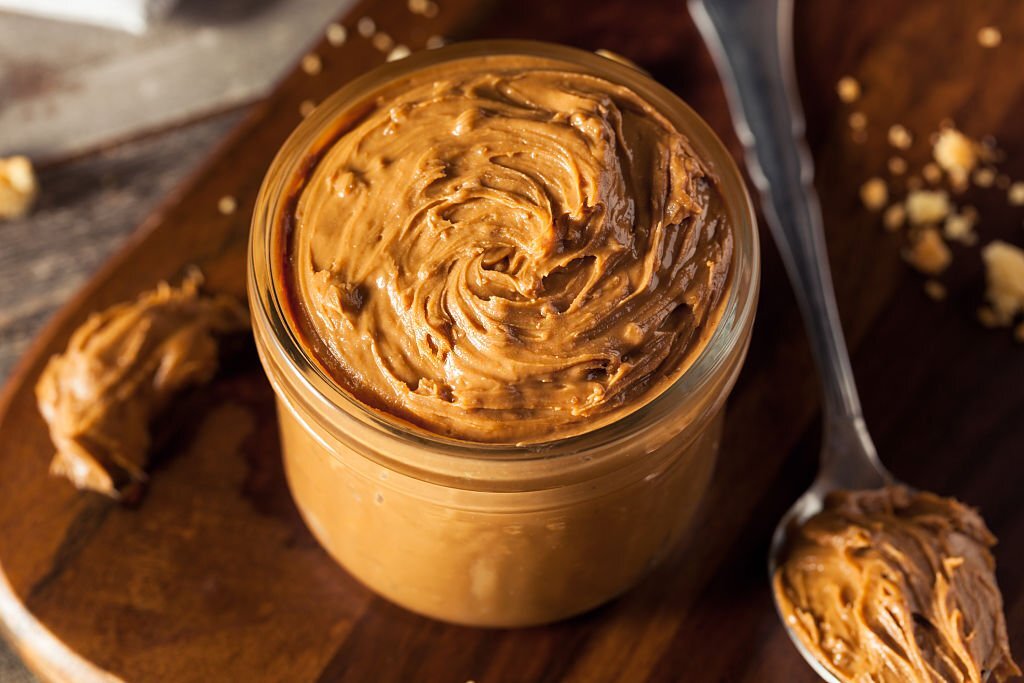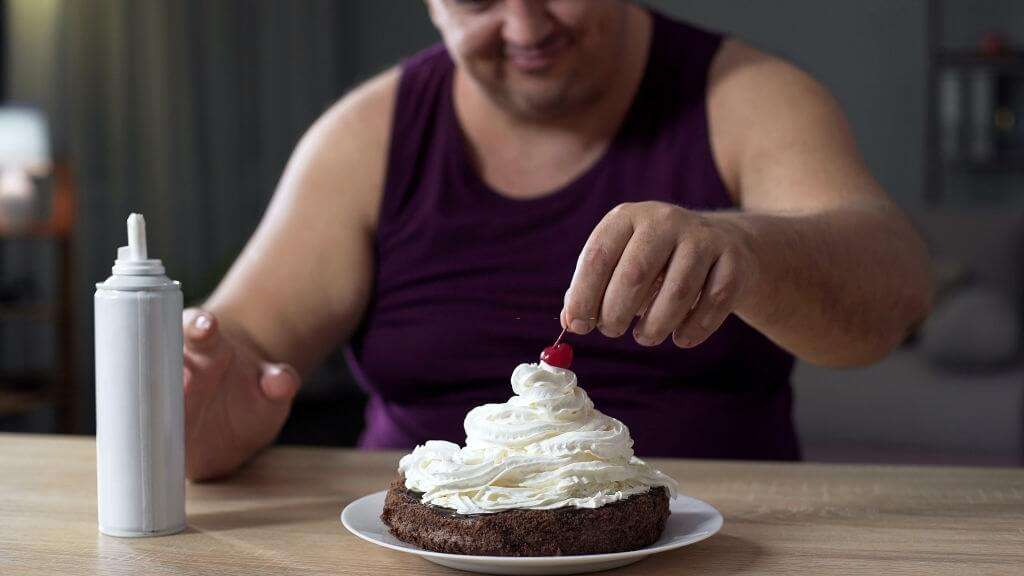For some reason, your peanut butter is watery. You’re a bit confused; you might wonder if there is cause for concern.
Don’t fret. We’ll be sharing our thoughts on why peanut butter is sometimes watery. We’ll also let you know how to fix or thicken your peanut butter if it gets too light, and if/when you should be worried about your peanut butter.
Why is my peanut butter watery?
Watery peanut butter is often as a result of the peanut oil separating from the butter to form a thin layer at the surface. This is common with all-natural peanut butter brands.
If your peanut butter is watery, it simply means that no artificial additives have been added to it.
Is it normal for peanut butter to be watery?
Yes, it is totally normal for peanut butter to be watery. This usually happens with natural peanut butter products that have not been infused with synthetic ingredients.
Natural peanut butter is made solely from crushed peanuts and some salt, and it is good for you. So, there’s really nothing to worry about!
Is watery peanut butter bad?
On the contrary, watery peanut butter is good. Many solid peanut butter products have been infused with artificial additives or stabilizers to give them a thicker consistency.
Now, if your peanut butter is thick or solid instead of having a more pasty, runny consistency, it is a telltale sign that it may have been infused with artificial ingredients. Some of these ingredients could contain trans-fats and might be pretty bad for your health.
Is the Oil in Peanut Butter Good for You?
Yes, the oil in peanut butter is good for you, this is because the oil is essentially a lighter version of peanut butter itself. When the peanut is being ground for production, there’s the release of oil from the peanuts and so that is why at room temperature, the oil separates and floats above its thicker components.
However, if you’re uncomfortable seeing the oil or if it is a large quantity, you can drain it and use it as an accompaniment to several dishes such as using it for stir fry or just normal cooking, the oil adds a unique peanut flavor to every meal.
How do you fix runny peanut butter?
Since it is easy for natural peanut butter to turn runny, there are a few ways to thicken it at home. It doesn’t matter if your peanut butter is homemade or store-bought. You can make it thicker using any of these methods.
Just like when you’re trying to thicken soups or sauces, stir your peanut butter. You could decide to leave in the oil and stir vigorously until you get your desired consistency.
You could also decide to drain the oil. Draining the oil and keeping it allows you to use it to make some dishes that require peanut oil later on.
Refrigerating your peanut butter is another thickening method. For this, you would have to have already stirred it to your taste. Refrigerating the peanut butter will keep it at your preferred consistency and keep the oil from separating.
Another thickening method is stabilizing your peanut butter with essential oils. You could either use coconut oil or vegetable oil. Adding either one in little quantities while stirring is a great way to thicken peanut butter. On the downside, it might alter the flavor.
How can you tell if peanut butter has gone bad?
Watery peanut butter does not mean it has gone bad. But if you notice a change in the texture, perhaps it is now dry or stiff, that could be an indicator.
Other indicators of bad peanut butter are changes in its scent or loss of scent. A change in taste to sour or bitter is also an indication that it has gone bad.
Is it okay to eat watery peanut butter?
It is okay to eat watery peanut butter. It is a huge indicator that you are not consuming artificial or potentially unhealthy products.
Watery peanut butter usually has a shorter shelf life than its stabilized counterparts, but it’s totally fine to eat it once you stir it to your desired consistency.
Is Peanut Butter Good If It’s Watery?
Yes, it is good when your peanut butter is watery, this is because it helps to indicate that your peanut butter is from an organic brand that doesn’t add extra chemicals to their products. Watery peanut butter is totally normal and safe as this is the natural state of peanut butter, the ingredients used to prepare it are the peanut themselves and salt, whereas for the commercially processed peanut butter, there are a lot of other chemicals added to this such as hydrogenated oil, soy lecithin as emulsifiers and guar or xanthan gum as thickeners, these additives make the peanut butter look appealing but ultimately unhealthy to consume.
Does Peanut Butter Make Your Butt Bigger?
No, peanut butter does not make your butt bigger. However, it can cause you to gain weight and this is because peanut butter contains a lot of calories, it also contains healthy fat, proteins, and other essential nutrients which makes it a good alternative if you’re going for weight gain without the harmful effects of eating junk food. Consuming peanut butter increases weight but specifically making your butt bigger with it is dependent on several factors such as genes, gender, and body shape.
Why does oil separate from peanut butter?
Many prominent brands employ stabilizers to keep the peanut butter from separating. However, natural peanut butter does not contain any of these ingredients. As a result, you find the peanut oil separating from the peanut butter, especially when the temperature is warm.
The science behind this is a process known as sedimentation. The peanut butter particles sort of sink to the bottom of the jar, resulting in an often-thin layer of peanut oil on top.
When the oil separates from the peanut butter, it lasts for a shorter period than if it had stabilizers, which is why many brands use these stabilizers.
Read also: Pigeon Peas Vs Green Peas – The Differences

Does natural peanut butter need to be refrigerated?
Refrigerating natural peanut butter is not a prerequisite. It could last for about a month after you open it and it will not lose its quality. But there are a couple of benefits to storing natural peanut butter in the fridge that you might want to look at.
Refrigerating peanut butter keeps the oils in it from going stale. This is especially important with natural peanut butter, as it could get sour very fast after opening. If you do not run through your peanut butter in about three weeks to a month, you would definitely benefit from refrigerating it.
Also, as mentioned earlier in the article, refrigerating peanut butter helps you maintain the thickness after stirring to your desired consistency. It keeps it cool and together. The oils can separate quickly at room temperature and cause the peanut butter to get watery.
Read also: Cast Iron Skillet Vs French Skillet Vs Frying Pan – The Differences
Does peanut butter glow in the dark?
As surprising as it may seem, peanut butter can glow in the dark. This is because peanut butter contains a natural chemical compound known as phenol. This makes it possible for the peanut butter to absorb light energy from specific sources and re-emit as a green or yellow glow.
To get your peanut butter to glow in the dark, you may need to expose it to UV light. The effect is brief and usually does not last longer than a few seconds, but it is there!
So, there you have it. We have uncovered many peanut butter secrets. The bottom line is that watery peanut butter is good for you, so you can rest easy.
Peanut butter is quite a spread. It lasts so long, and it has a phenomenal taste as well. Peanut butter generally lasts long, but we are more than happy to give you tips to keep your peanut butter from going bad quickly.
Proper storage makes it last even longer.
Now, you can carry on with your day with the assurance that your jar of peanut butter is fine. Remember to stir it when it starts to get runny or before use, keep it cool and dry, and enjoy some tasty peanut butter recipes while you are at it!





